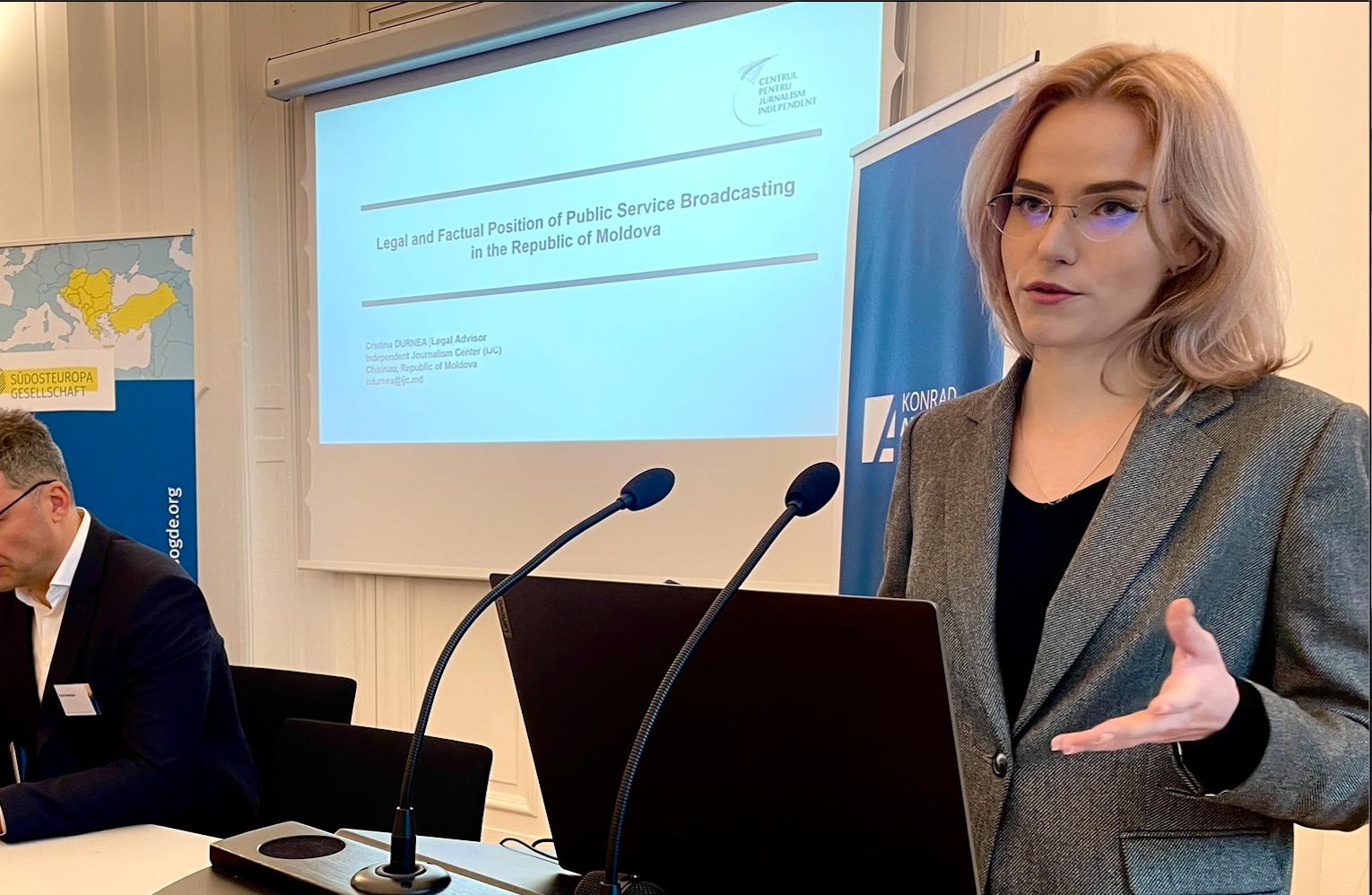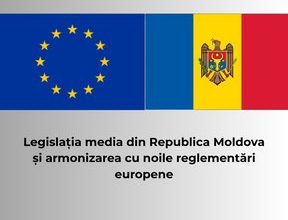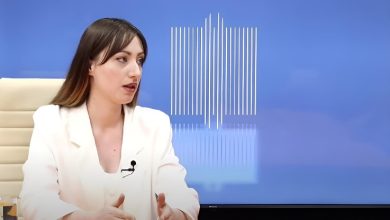Suspending 6 Broadcasting Licenses: An Equation in Several Unknowns from the CES Order

Cristina Durnea, lawyer
On December 16, 2022, the Commission for Emergency Situations (CES) of the Republic of Moldova ordered to suspend the broadcasting licenses of the six TV channels (Primul in Moldova, RTR Moldova, Accent TV, NTV Moldova, TV6, and Orhei TV) for the “lack of correct information while covering the national events, and also the war in Ukraine.”
The CES order has been perceived differently by the members of the Moldovan community: those who celebrate “purification” of the broadcasting space enjoy it, and those who consider themselves deprived of informational pluralism or see themselves as victims of the censorship regime disapprove of it. Apart from these two categories, there are also those who admit the need for the state intervention to protect national information security, but question the legitimacy and proportionality of the restrictive steps made by the CES.
I have to admit I belong to the latter category: I envy those who do not doubt the legality or illegality of the suspension, and I look forward to an irrevocable solution of this dilemma by the national courts or, probably, by the European Court of Human Rights. Until that moment, however, I would like to share a few thoughts on this topic with you.
Suspending a broadcasting license is a temporary cessation of the right to broadcast a specific linear audiovisual media service and has the effect of limiting the right to free expression stipulated by Art. 10 of the European Convention on Human Rights.
Over time, the law has formulated three criteria justifying the restrictions on freedom of expression. These restrictions should:
- be stipulated by the legislation;
- pursue a legitimate purpose;
- be proportionate to the intended purpose.
Basically, this is admissibility of restriction. The Law on the Regime of the State of Emergency, Siege, and War stipulates that, during the state of emergency, depending on the gravity of the situation which caused its establishment, exercising certain rights or freedoms of citizens may be restricted, if necessary, pursuant to the provisions of Art. 54 of the Constitution.
The current state of emergency in the territory of the Republic of Moldova was declared on February 24, 2022, and has been successively prolonged five times. According to the first decision of the Parliament in this regard, establishing the state of emergency was caused by “the situation related to regional security and the threat to national security” in the context of the war in Ukraine.
In addition, in the content of the decision of February 24, 2022, the Parliament stipulated the CES’s prerogative to issue provisions in order to take steps for coordinating mass media activity for countering disinformation, fake news, and hate speech. According to the informative note, “during the risk monitoring process, concerted actions aimed at distributing false information in order to cause panic among the population have been detected. In the morning of February 24, 2022, fake information on military mobilization of citizens of the Republic of Moldova was being spread. Such actions cause panic among the population, can destabilize economic and financial activity, and threaten public order and national security.”
Therefore, basically, the current legal framework allows restricting freedom of expression. The possibility of such restrictions has to be related to the gravity of the situation which has determined the state of emergency. In this case, it is related to the outbreak of the war in Ukraine and its impact on regional and national security.
The announced purpose of applying restrictions to the broadcasting media service providers is “protecting the national information space and preventing the risk of disinformation due to spreading false information or attempts to manipulate public opinion.” The CES provision in the part related to suspending the broadcasting licenses does not stipulate any mandatory application rules for an indefinite number of identical situations. Hence, it cannot be regarded as a normative act; it actually is an individual administrative act regulating the particular cases of the six TV channels. Moreover, this individual administrative act is unfavorable to them, and, according to the legislation, it is supposed to be fully motivated.
The CES explains its decision to suspend the license of the media service providers in question by the following two distinct statements:
- several individuals and/or legal persons subject to international sanctions exercise control over the restricted TV channels (“Based on the list of individuals and legal persons subject to international sanctions and the available information on the control over some media service providers exercised by them”);
- The Broadcasting Council (DC) monitored and sanctioned the TV channels for the lack of correct information while covering the national events and the war in Ukraine (“as well as multiple statements from the monitoring reports of the BC regarding the breaches of the CAMS, implicitly application of sanctions for the lack of correct information while covering the national events, and also the war in Ukraine”).
As to the first thesis, it should be specified that, in the order of October 31, 2022, the CES applied a series of restrictive steps on the subjects included in the list of individuals and legal persons sanctioned by the Office of Foreign Assets Control (OFAC) of the United States Department of the Treasury. This list includes Vladimir Plahotniuc, Ilan Sor, Sara Sor, the Sor Party, etc.
In this context, it should be mentioned that, on October 4, 2022, the BC filed applications to the Information and Security Service (ISS), the National Anticorruption Center (NAC), and the Competition Council (CC) to investigate whether the Sor Party controlled such channels as TV6, Orhei TV, Primul in Moldova, and Accent TV. It is unknown what the authorities replied to these applications. The reason is that the authorities did not publish such data, and Media Azi journalists’ request for access to this information was dismissed by the BC which invoked the “state secret.”
In the absence of adequate motivation and communication with the authorities, we can only suppose that the information regarding the effective beneficiary of the TV channels in question the CES invokes is the result of the control procedures fulfilled on the basis of the BC’s applications. In other words, the ISS or another authority probably notified by the BC could have generated some proofs that Ilan Sor/the Sor Party directly or indirectly controlled the TV channels subject to the restrictions.
Anyway, one of the reasons why the CES justifies its restrictive actions is media concentration in the hands of a person included in the restricted list. This fact is a breach of the provisions of the audiovisual media legislation and competition regulations. However, the question is whether these circumstances are related to the situation which determined the state of emergency (the outbreak of the war in Ukraine and threats to national security) or to the legitimate goal pursued by these restrictions (such as protecting the national information space). Could the authorities have any information that subversive actions were being prepared in order to influence the state’s foreign policy or to alter the content of the information circulating in the public space (by means of manipulation, misinformation, concealment, or falsification of information) to cause panic, tension, or social conflicts? We could only find the answer in the analysis of the exact statements of the authorities on media concentration, as well as in an extensive explanation by the CES justifying the way a single person’s control over the six TV channels affects or could affect the state’s information security in the context of the threats related to the outbreak of the war in Ukraine.
The second thesis of the CES invokes “multiple statements from the monitoring reports of the BC regarding the breaches of the Code of Audiovisual Media Services (CAMS), implicitly application of sanctions for the lack of correct information while covering the national events, and also the war in Ukraine.”
It is true that, before the Russian Federation started an aggressive war against Ukraine, four of the six TV channels listed in the CES order were rebroadcasting audiovisual programs from the Russian Federation, and some of them were obviously propagandistic. The general population has been suffering from harmful effects of this toxic content. After February 24, 2022, as a result of the CES order, the channels in question ceased rebroadcasting the Kremlin disinformation. In 2022, the BC applied its sanctions against the TV channels for non-compliance with the provisions of Art. 13 of the CAMS, i.e. breach of the obligation to provide correct information. The exact number of sanctioning decisions remaining in force after conducting the legality control remains unknown.
For this very reason, only an extensive explanatory report could help us comprehend the seriousness of the breaches and the way the conduct of the six TV channels could have justified the need to order suspending their broadcasting licenses.
The restrictive actions imposed by the CES undoubtedly raise the community’s concerns about the likelihood of arbitrariness and abuse in accessing the rigorous mechanisms used during the state of emergency. Due to the authorities’ inability to properly explain and motivate their decisions, many unknown circumstances prevent any impartial observer from assessing the proportionality of the interference with its objective and the legitimacy of its goal. Currently, we draw consolation from waiting for some answers from the authorities and probably some court verdicts.
On the other hand, it is necessary to constantly practice our awareness of the fact that, in the present-day context, the national security of the Republic of Moldova is subject to real threats caused by subversive actions by the aggressor state, as well as by certain organizations and individuals. The state of emergency regime presupposes, ab initio, implementing legal steps of an exceptional nature which should not be examined in terms of ordinary political, economic, or social conditions. The actions taken in the information space by the state or non-state entities by means of propaganda, media aggression, manipulation, and disinformation, aimed at undermining sovereignty, independence, and territorial integrity of the Republic of Moldova, have to be countered immediately and efficiently.
Finally, I would like to renounce the messages of compassion for the “wronged parties” in the press, who, over the years, have been ignoring the legislation and the rules of journalistic deontology to the detriment of providing correct and impartial information for the citizens. Especially since those who supported rooting propagandistic information in the consciousness of the population have already found some “consolation” from the exponents of the Kremlin.
* The opinions expressed above belong to me and do not necessarily represent the point of view of the organization I represent.




